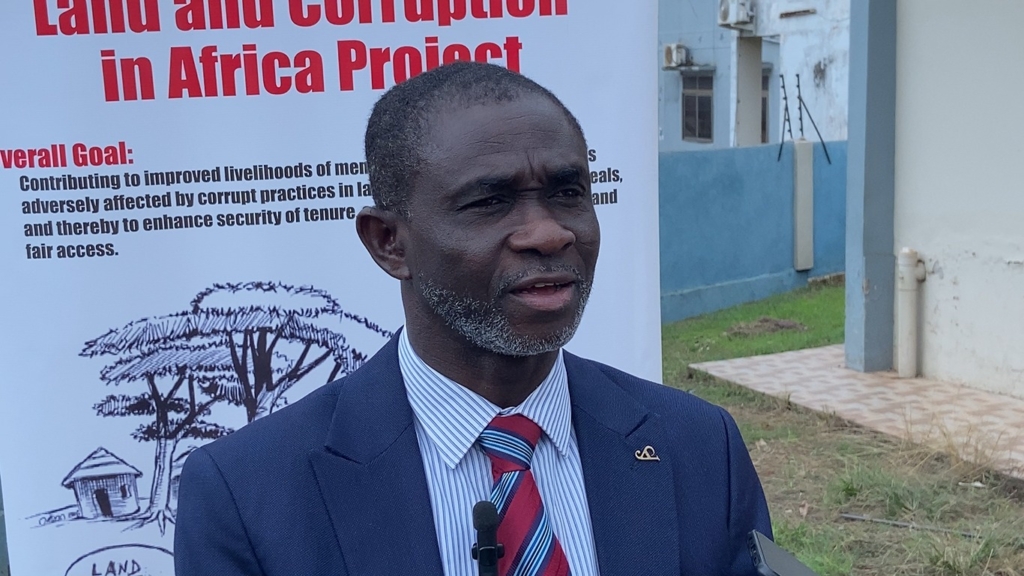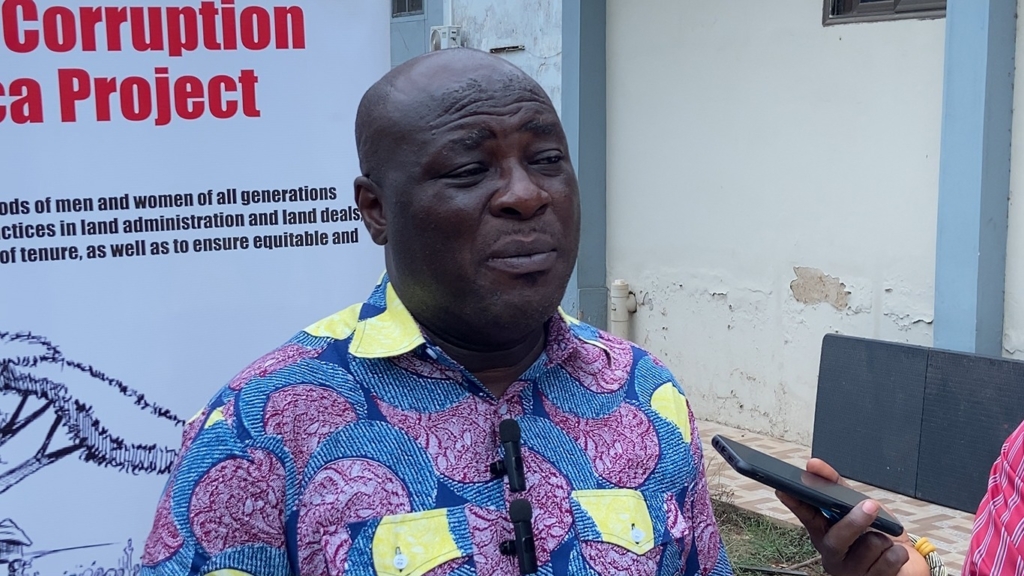
Transparency International Ghana is raising concern over the growing land disputes, identifying them as a major driver of land corruption in Ghana.
The anti-corruption group insists the illicit acquisition and misuse of land are fueled by the irregular land tenure systems and conflicts within families.
The situation is driving a weakened customary accountability, and marginalization of women and the youth from land-related decision-making.
About 80% of land in Ghana is held under customary tenure arrangements by chiefs, family heads, and elders in communities.
Although the systems have long guaranteed community access to land, they are increasingly under pressure from fast-tracking urbanization, land commodification, and policy incoherence.
Increased cases of land alienation and deals conducted without community approval have resulted in tenure insecurity and social conflicts.
Ashanti Regional Commissioner of Land, Peter Osei Owusu, insists some traditional land ownership structures fuel disputes.

He says the effects of these disputes drive corruption in land governance.
“Unlike the Ashanti region where lands have known owners and defaulters of land mismanagement are reprimanded traditionally, it becomes hard to track land ownership in some regions. You struggle to ascertain who legitimately owns the land. So for people with intentions to own lands, many would use illicit means to acquire them,” he said.
Land governance was a major highlight of the multi-stakeholder dialogue in Kumasi with a focus on land and corruption in women’s land rights, customary land administration, and the legal empowerment of marginalized groups.

The engagement, held under the theme “Strengthening Inclusive Land Governance in Ghana”, discussed how unclear land boundaries, multiple ownership claims, and differences between customary and official land laws often lead to bribery, forged documents, and abuse of power.
It’s built on ongoing efforts to promote transparency, secure tenure, and participatory decision-making at all levels to improve accountability, strengthen public participation in land decisions, and reduce corruption linked to land disputes.
Project Coordinator of Transparency International Ghana, Michael Okai called for inclusive discussions on land management that factor customary and statutory stakeholders’ strategies.
He believes this will make land transactions more transparent, harmonize traditional and official systems, and ensure fair treatment for all.
“Through open discussion, evidence-sharing, and strategic partnerships, with people who matter, including chiefs, will contribute to a future where land administration supports justice, empowerment, and sustainable development for all.
“Securing equitable and accountable land governance in Ghana requires more than legal reforms, it demands dialogue, consensus, and sustained multi-actor collaboration,” he said.
The one-day dialogue forms part of the Land and Corruption in Africa Project (LCA) II, organized by Transparency International Ghana in collaboration with the Lands Commission.
Transparency International Ghana also stepped-up efforts to fight corruption in the land sector through its Report Corruption project, which began in 2022.
At a second re-swapping assessment training, the focus was on engaging private sector actors, farmers, and communities to identify and address corruption risks.
Deputy Regional Head of the Mapping Division of the Lands Commission, Prince Akwasi Sasu says with electronic conveyancing human contact will be cut down, reduce paperwork, and prevent illegal demands from officers to ensure less corrupt incidents.
The Commission hopes full digitization of land records will improve transparency and service delivery across Ghana.
